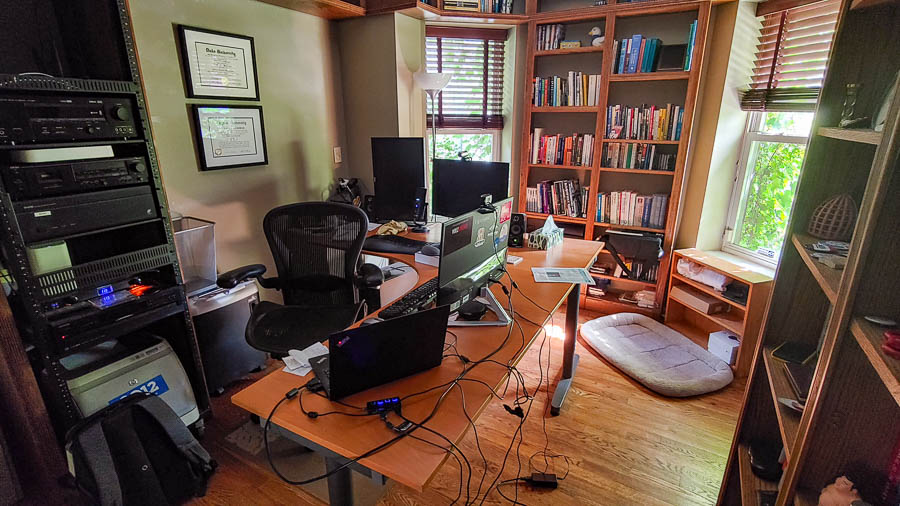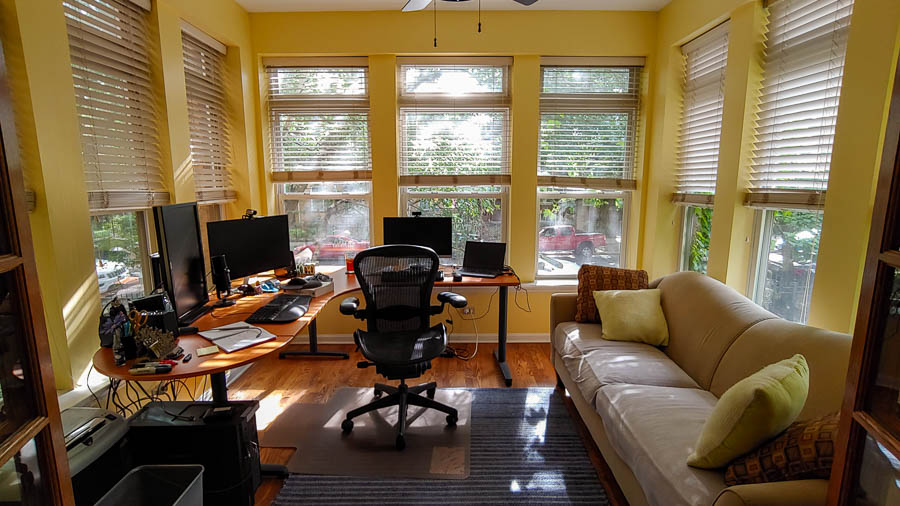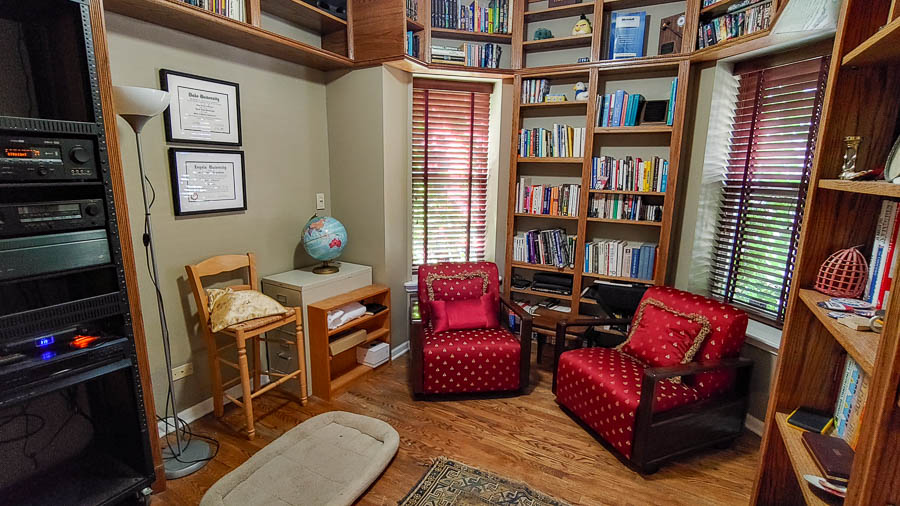The environmental change I alluded to yesterday went much more smoothly than anticipated.
When I moved to my current place, I put Inner Drive Technology World Headquarters (IDTWHQ) in the room that most clearly said "office," the one off the kitchen with all the built-in bookshelves and the A/V stack the previous owners left behind. It faces south, but it has bay windows covered in ivy, providing subdued indirect light in the summer and lots of direct sunlight in the afternoon from October to March. While the bay windows provide some ventilation, the room gets a bit stuffy when they're closed, and doesn't really get much airflow when they're open. Also, the geometry of the room never quite worked with my desk. I had to squeeze around it to get into my chair, making the whole thing feel a bit constraining.
Add in 3-5 days of working from home every week, with my work laptop and secondary monitor occupying a hunk of real estate on the desk while dropping wires and power cables on the floor between the door and Cassie's bed, and the whole thing has felt really cramped for the last 18 months:

That, my friends, is bad feng shui.
Meanwhile, my easternmost room, overlooking the leafy side-street I live on, naturally became a sunroom:

I mean, light, air, and about half the time a dog on the couch? What's not to love? In fact, now in the second summer of working from home 60% or more, most days I wanted to sit on that couch with Cassie and read—especially when the weather permitted me to open all nine of those windows.
So, with a little help from Comcast to fix the cable running into my living room, yesterday I moved my office into the sunroom. Even with my work crap still occupying the same hunk of real estate, it just looks and feels so much better:

And the office? It became a sitting room:

I don't know how much I'll actually sit there, but its proximity to the kitchen means that when I entertain, people will use it for kitchen-adjacent overflow.
Cassie, naturally, freaked out a bit, and it took some coaxing for her to get back on the couch (probably because it was in the wrong place!). But as I write this, she's in the room with me, psychically commanding me to take her outside.
I don't understand why I didn't do this last year. It would have made the pandemic lockdown a ton more enjoyable. I mean, it only took me six years to configure my place in Lincoln Park correctly, but that had to do with the physical constraints imposed by having an entire server rack in one corner of the living room in an era before gigabit wi-fi. (The server rack had to go next to the POTS line jack because I used a DSL, and running a network cable through the walls to the other side of the living room was the only real option.)
This room really does feel better. And tomorrow, after Chicago's fever breaks, I'll open the windows.